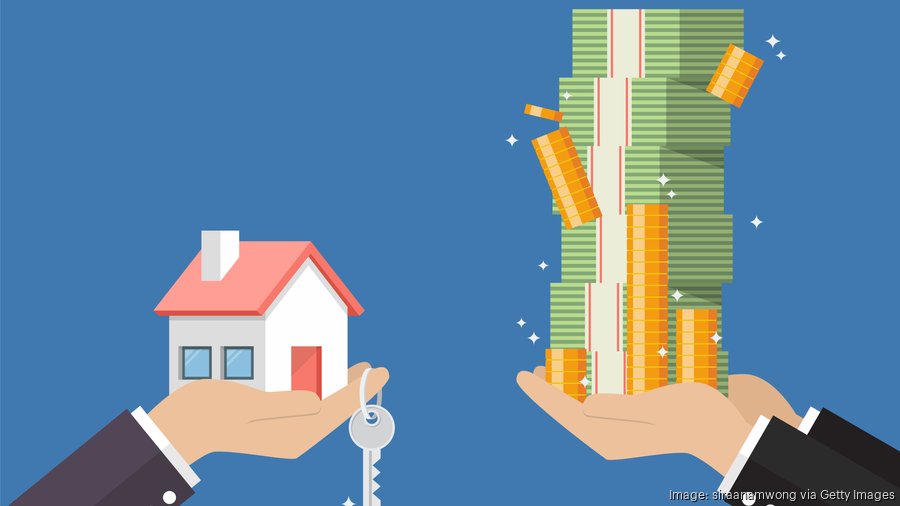
Austin Business Journal writes, "The Fannie Mae Home Purchase Sentiment — a gauge of how good buyers feel about the housing market — fell to its lowest number since the agency began measuring it in 2010.
In May, just 14% of consumers surveyed by the agency said it was a good time to buy a home, down from 20% in April. Those who said it was a bad time to buy increased to 86%.
Even seller optimism slipped, dropping from 67% who believed it was a good time to sell in April to 64% in May. The growing pessimism comes even as about 20% of those surveyed said their household income was higher than it was a year ago.
The declining sentiments are yet another factor weighing on the housing market, which is fueling an affordability crisis in many metro areas. It's also becoming a flash point in the 2024 election.
"Consumer sentiment toward housing declined from its recent plateau, as an increasing share of consumers struggle to find the positives in the current housing market," said Doug Duncan, Fannie Mae senior vice president and chief economist. "While many respondents expressed optimism at the beginning of the year that mortgage rates would decline, that simply hasn't happened, and current sentiment reflects pent-up frustration with the overall lack of purchase affordability.
The new low on sentiment comes after more than half of Americans had described the market as a good time to buy for years leading up to the pandemic, when the metric dropped below 30% for the first time. It has continued to drop over the last several years.
And while seller sentiment slipped, the fact it was still high could mean that more houses will come up for sale, providing some relief on incredibly tight inventory. The idea that homeowners are hesitant — or "locked in" to their existing homes — is widespread, driven by the extremely low interest rates on home mortgages during the height of the pandemic. au
“This suggests to us that, despite the so-called 'lock-in effect,' some homeowners may increasingly want or need to sell their homes for myriad non-financial reasons, which may lead to an increase in listings in the near future. As our latest forecast notes, we expect improvements to housing inventory will lead to slightly increased sales activity through the end of the year."
Overall, many people have a bleak outlook on the housing market, with 42% expecting prices to go up over the next 12 months, and only 18% expecting them to go down. Meanwhile only 25% expect mortgage interest rates to go down, compared to 31% who expect them to go up.
The only bright spot? Most Americans are not concerned about losing their job, at 75%, compared to the 24% who are concerned about losing their job. And 20% say their household income grew significantly over the last 12 months compared to 12% who said their income was dropped significantly over the last 12 months.
The Fannie Mae report is one of many that show Americans are frustrated and tired of the combination of escalating home prices during the pandemic and skyrocketing monthly payments as the Federal Reserve repeatedly hiked rates in 2022 to lower inflation and stave off an overheated economy.
The combination of high interest rates and high prices has helped push the median monthly housing payment to a record $2,843, according to Redfin, up 13% over the same time last year.
Meanwhile some markets are seeing more price drops and houses sitting longer for sale. Data from real estate firm Redfin Corp. shows 6.4% of active listings on the platform had a price drop through the week ending May 26. While that's not a massive portion of listings, the percentage is substantially higher than the 4.4% of listings with price drops recorded during the same time in 2023. It's also higher than the percentages seen at the same point in 2022 and 2021.
But that doesn't mean prices are coming down, as experts agree these corrections are largely just adjustments from the market highs of 2021, and that there is still little housing supply to meet demand.
Baby boomers, millennials, Gen Z are in a housing market tug-of-war
A report from Redfin earlier this year found the length of time people stay in their homes has more or less doubled since 2006. In that year, the median homeowner spent about 6.5 years in a home. That number peaked at 13.4 years in 2020 before dipping to 11.9 years in 2023.
About 56% of baby boomers have lived in their home for at least 10 years, according to the study, while 35% of Gen Xers have lived in their home for at least a decade. Just 7% of millennials have stayed in their home for 10 years or longer.
The homes older Americans own also tend to be larger. A separate Redfin analysis found empty-nester baby boomers own twice as many three-bedroom-plus homes as do millennials with kids.
The houses that do come up for sale are increasingly in need of renovations. A report from home-improvement company Leaf Home and Morning Consult found 73% of baby boomers have been in their current homes for 11 years or more, and over half own homes built in 1980 or earlier that have never been renovated. A majority say they have no plans to do so, either."
Source: Austin Business Journal
Written by: Andy Medici
Published: June 11, 2024
Posted by Grossman & Jones Group on
Leave A Comment